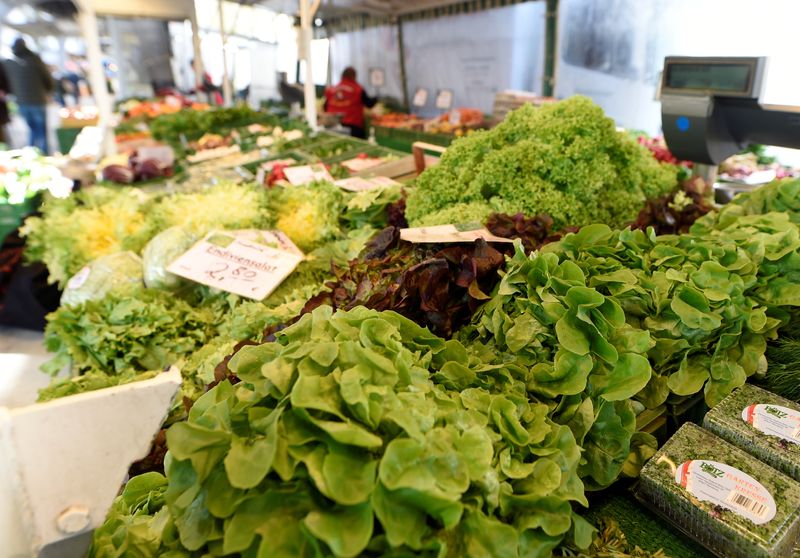BERLIN (Reuters) - German consumer sentiment is set to nudge up in April as energy prices have relented somewhat from record highs, though a full recovery is not in sight anytime soon, showed a GfK institute survey on Wednesday.
The institute forecast its consumer sentiment index to improve to -29.5 heading into April from a revised reading of -30.6 in March, slightly below the expectations of analysts polled by Reuters of -29.0.
April's reading, rising for the sixth month in a row, shows sentiment is on its way towards recovery, GfK said, but the pace of growth has slowed noticeably compared with previous months.
"The anticipated loss of purchasing power is preventing a sustained recovery of domestic demand," said GfK consumer expert Rolf Buerkl, which means private consumption is not likely to contribute to the German economy in a positive way this year.
"This is also indicated by the still very low level of consumer confidence," he said.
The subindex measuring income expectations was the main contributor to the increase in sentiment, rising to its highest level in 10 months, -24.3, in March from -27.3 in February.
"The income outlook is currently benefiting from noticeably lower prices for energy, especially for gasoline and heating oil. Nevertheless, inflation will remain high," Buerkl said.
APR 2023 MAR 2023 APR 2022
Consumer climate -29.5 -30.6 -15.7
Consumer climate components MAR 2023 FEB 2023 MAR 2022
- willingness to buy -17.0 -17.3 -2.1
- income expectations -24.3 -27.3 -22.1
- business cycle expectations 3.7 6.0 -8.9
NOTE - The survey period was between March 2-13, 2023.
The consumer climate indicator forecasts the development of real private consumption in the following month.
An indicator reading above zero signals year-on-year growth in private consumption. A value below zero indicates a drop compared with the same period a year earlier.
According to GfK, a one-point change in the indicator corresponds to a year-on-year change of 0.1% in private consumption.
The "willingness to buy" indicator represents the balance between positive and negative responses to the question: "Do you think now is a good time to buy major items?"

The income expectations sub-index reflects expectations about the development of household finances in the coming 12 months.
The additional business cycle expectations index reflects the assessment of those questioned of the general economic situation in the next 12 months.